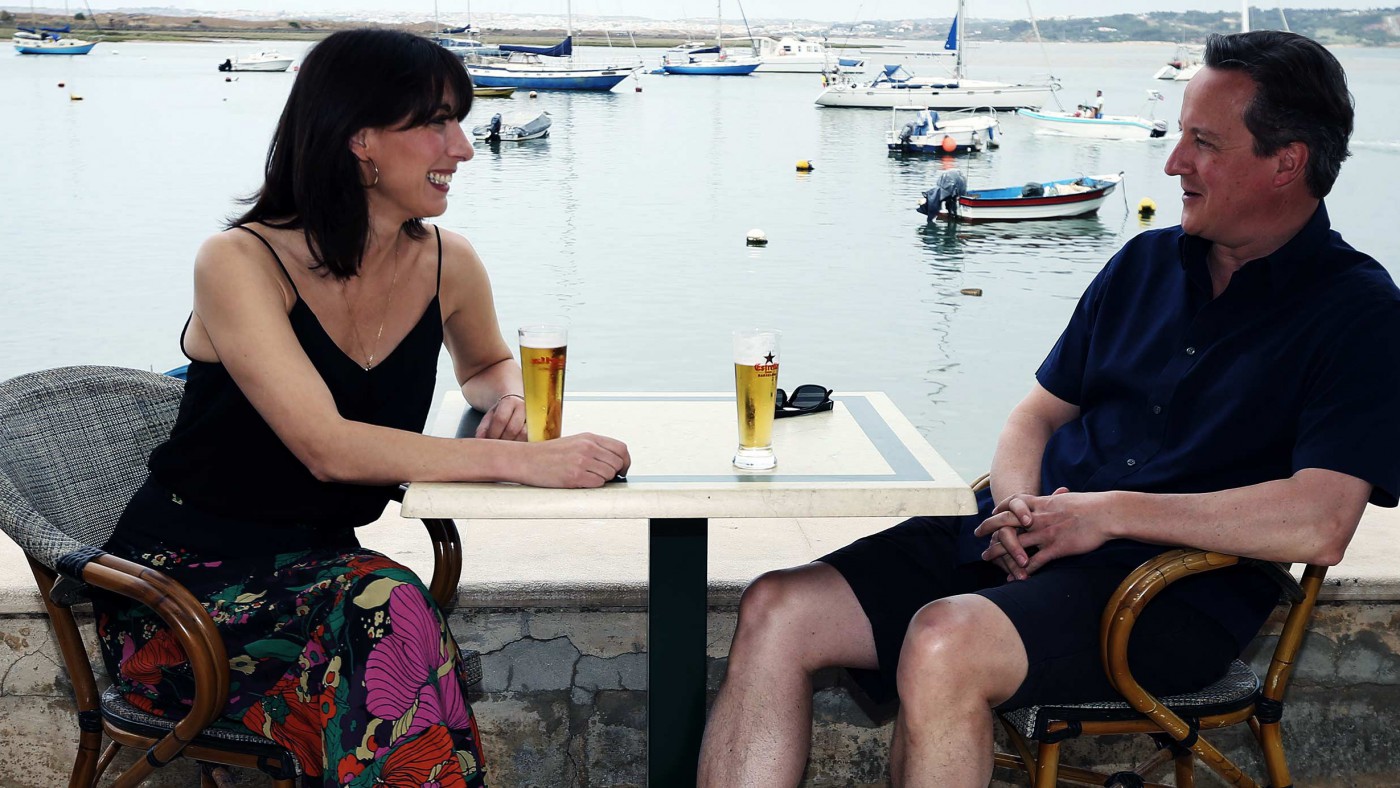Days two and three of revelations in the Daily Mail, which is serialising Lord Ashcroft’s very unauthorised biography of David Cameron, may have made fewer headlines than the…er…eyebrow raisers on day one, but they follow broadly the same pattern: David Cameron likes a drink and good time and before he got married he liked chasing girls. Also, in pursuit of these goals, he often did very stupid things as a young man.
Well, have you ever heard the like?
The problem with those who think this will hurt Cameron politically is they forget who matters here – the British electorate. Note to aid Corbyn-supporting readers: the electorate are the people who don’t follow you on Twitter.
Were they laughing at the allegations of a depraved university dining club initiation? Hell yes. They were laughing until their ribs hurt, as were we all (Lord knows I was). Do they think that, even if true, this “revelation” from 30 years ago affects the ability of the middle aged man now in No10 to govern? No. And the reason is that whilst most of us may not have Cameron’s plummy background, and many didn’t go to university at all, never mind Oxford with its elite societies, just about everyone as a young man or women did stupid, drunk things in pursuit of a good time.
How many of us over 35 have had cause to be relieved that social media and camera phones arrived after our teenage years and 20s? Yep, me too.
And that’s the rub, just like that time Cameron left his daughter in an Oxfordshire pub after a family Sunday lunch, most people can relate to this stuff. Not the specific allegations but the idea that if we were all suddenly made to explain to the nation what we did as kids and young people we’d be a bit red in the face.
I used to live in Witney, Cameron’s Oxfordshire constituency. As a man who likes his beer I got to know my local landlords too and they all said the same thing: before he became party leader he was regularly in the pubs, he knew and appreciated his ale. Once he hit the big time, of course, he couldn’t quite manage to slip out for a pint so often, but he and Sam went to the pub before he attended his count on the night of 2010 election. The journalist Quentin Letts and I were there and we were struck by how comfortable he was with the locals, who were as varied a lot as you get in any market town pub.
That’s because despite having all the trappings of his class, he’s relatively normal, as most of us are.
What was Jeremy Corbyn doing at 19 and 20? Things that were undoubtably more worthy and admirable than trying to get a bunk-up with posh girls at parties, certainly. He was protesting about evil regimes around the world, drafting policy positions on trade union recognition and speaking at political meetings on US foreign policy.
But the truth, and perhaps it’s a sad one, is that Britain has never liked political obsessives even when it agreed with them. We’re suspicious of people who appear too sure, or people who don’t appear to be able to relax from time to time. Chesterton’s “The Rolling English Road” sums our view up rather well:
“I knew no harm of Bonaparte and plenty of the Squire,
And for to fight the Frenchman I did not much desire;
But I did bash their baggonets because they came arrayed
To straighten out the crooked road an English drunkard made,
Where you and I went down the lane with ale-mugs in our hands,
The night we went to Glastonbury by way of Goodwin Sands.”
We in Britain, and especially in England, like our leaders or heroes to be normal folk upon whom leadership or heroism is thrust. We like them to stop being like us for a moment and shoulder those burdens, preferably brilliantly, but to be able to laugh at themselves along the way. There is no greater crime than taking yourself too seriously.
As a consequence we’re left with the irony that the Old Etonian son of a stockbroker who went on to marry an aristocrat appears more normal to most people, the more they read about his life, than a man immersed in progressive politics from not long after he could read and never immersed in anything else.
How Jeremy Corbyn’s newly-employed spin team must wish he’d made a mortal enemy of a billionaire like Michael Ashcroft.
But then if he had, what would we learn? That he once filibusted a meeting of the People’s Democratic Action Movement For Solidary With Cuba in a church hall in Barnsbury in 1978, probably.
As Chesterton might have put it: Cameron got to Downing Street, but by way of Goodwin Sands. And that’s the way Britain likes it because almost all of us arrived where we are today despite, not because of, our wilder youthful selves.


